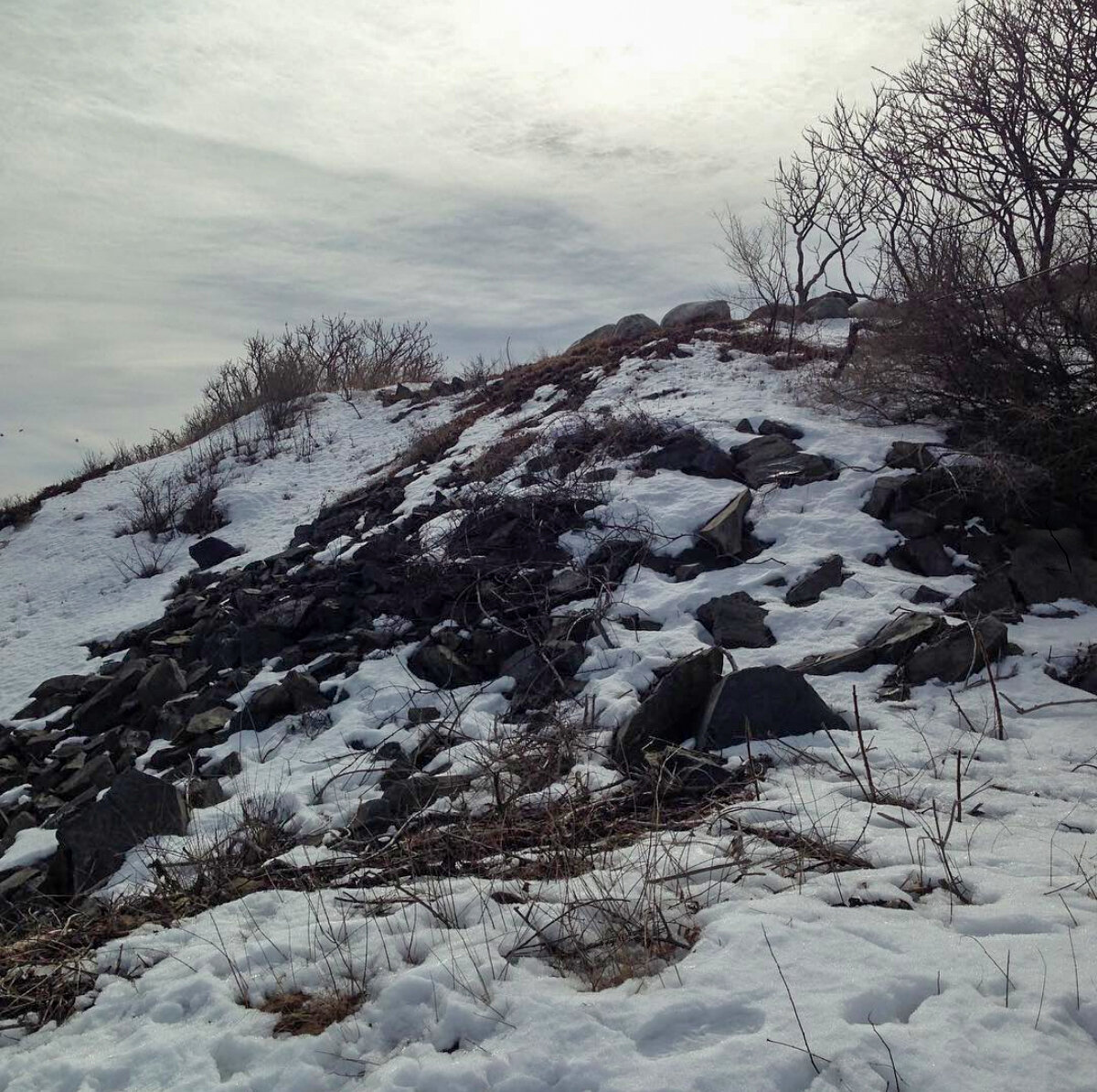I Still Love Plants
October 23, 2020
Joy Youwakim
During her childhood summers in Lebanon, Joy Youwakim witnessed plenty of environmental injustice at the hands of her corrupt government - unsanitary household water, lack of electricity, improper waste disposal. Now that she works in horticulture in the Texas Rio Grande Valley, she recognizes how economics, culture, and society all play key roles in global political ecology and agricultural accessibility. The region is responsible for the highest production of fruits, vegetables, and grains in Texas yet is also home to four of the most impoverished counties in the United States. For these reasons, Youwakim is working to increase economic autonomy for farmers and consumers.

My favorite fruits are pomegranates. I have really fond memories of peeling pomegranates with my parents. I even have a detailed vintage tattoo of a pomegranate on the right side of my ribs.
In Texas, you get up early enough to beat the heat. It’s customary to collect soil samples as the sun comes up, walking across hundreds of acres to pin GPS points. No day is the same, but they are all filled with the serenity of looking out across four hundred empty acres of rolling, grassy hills.
Hills built on trash, that is. For my second research project as an undergraduate in Austin, I tested the feasibility of growing produce atop closed landfills. Located in a food desert, the Austin landfill could provide free food as well as space for area residents to grow crops. Plants known as hyperaccumulators have the ability to uptake heavy metals from soil and are useful in contamination remediation. People don’t expect a landfill to grow particularly healthy-looking produce, let alone grow anything at all. When we sent our landfill produce off to the laboratory at Food Safety Net Services for testing, we were relieved that all of it proved to be non-toxic. This realization was a high moment in my early career, and one that was super validating.



My friends and I sometimes sit around and try to imagine the most sustainable diet. We all know that reducing our meat consumption is better for both our health and our planet, but consuming a vegan or vegetarian diet is not always more sustainable when one factors in unethical labor practices, high water input versus low caloric output, and costs of importing and transporting these foods. Such diets are also currently inaccessible to various groups of people and show signs of classism and cultural insensitivity.
I was introduced to the world of agriculture by my mathematics professor at the University of Texas at Austin, Dr. William Wolesensky. From there, I learned that participating in research is genuinely empowering because research is how we answer the questions that make us anxious. For agriculture in particular, research demonstrates that the answers to some of our ecological questions don’t lie in restricting what we grow, but in how we use it.



Current climate change research predicts temperatures and moisture cycles to fluctuate in geographic regions employed for agriculture. As agriculture adapts to change, it will be interesting to see which elements experience an overhaul. Take staple grains like corn and sorghum, for example. By comparing the drought resistant properties of these two grains, we can investigate which crop management practices may reduce irrigation needs and feed a growing world population under these predicted changes. Research found that in some water-stressed situations, corn losses doubled that of sorghum. This poses the question: should we transition to crops that rely on less water?
The reality is that most sorghum and corn yields do not go to human consumption. Sorghum is largely used for animal feed in the U.S., and corn is used in several non-food items such as toothpaste and diapers. Finding solutions for decreasing our consumption of non-food items might be a good place to start, or we could look into using less water-reliant crops for such necessities. Irrigation itself also has a lot of room for improvement. Most of our non-saline water on Earth gets used for agricultural irrigation, and much like oil, we use it as if it’s infinite, despite its costly expense. One small step towards a solution would be to upgrade decades-old irrigation canals and systems to mitigate daily water waste.
Regardless, corn production is heavily subsidized by the U.S. government, and the decisions we make on what to grow largely depend on trade necessities. So switching from corn to sorghum, or any other grain for that matter, requires we vote into office people educated on these issues. Seemingly small decisions like whether or not we grow sorghum, how much of it, and even if we ship it to China are hugely influential on the incomes of farmers.
Capitalism creates a lot of hunger, and hunger in turn fuels capitalism. So much of our food is stolen from us, only to be sold back at a higher price. Harvesting crops is like playing a game with political dice where the food on our tables is produced either ethically or with underpaid wage labor. The only winner is the businessperson accruing more wealth by selling overpriced produce to high-income populations. Somewhere in a field, a harvester working below minimum wage loses big.


Capitalism creates a lot of hunger, and hunger in turn fuels capitalism. So much of our food is stolen from us, only to be sold back at a higher price.
As I began to think more and more about the autonomy of farmers and consumers, my graduate research brought me to the Rio Grande Valley in south Texas. This region is responsible for the highest production of fruits, vegetables, and grains in Texas yet is also home to four of the most impoverished counties in the United States. Part of my studies involved assisting in the creation of an agricultural cooperative called the Frontera Farmers Coalition, a group of five small organic farmers who sell weekly shares from their farms. We devised workshops on post-harvest management to ensure less produce goes to waste. Due to specific food grade requirements, less than 60% of produce makes it to people’s mouths. The contemporary push in agricultural innovation investigates how to grow fruits, vegetables, and grains that last for longer amounts of time. I currently work as a technical field specialist at Apeel Sciences, a company that produces an edible coating made of plant-derived materials — lipids and glycerolipids found in peels, seeds, and pulp — to keep moisture inside and oxygen outside avocados, citrus fruits, and other produce, slowing the spoiling process. Ultimately, this innovation will provide grocery stores in low-income neighborhoods access to more produce that lasts longer and retains higher nutritional value.
The produce sector is more important than ever, especially as more populations lose access to traditional food streams as climate changes worsen. We can expect our low income and POC communities to experience the worst of these impacts. Likewise, the COVID-19 pandemic illustrates how we need to adapt to vulnerable populations like public school children to ensure they retain access to food. These groups have the most at stake when large corporations commit environmental injustices that go unpunished. Considering the economies, public health, and safety of these communities, it falls on our shoulders to put up a racket and hold large corporations accountable for their environmental disregard.
Most important to my practice is encouraging anyone to take action. I personally advocate for buying and eating from local farmers and neighbors to not only support their small operations, but to preserve farming as a viable, accessible occupation. I hope to strengthen resilience in these communities and ensure economic stability by implementing anti-capitalist methods like grants, partnerships, and cooperatives. If we reclaim our food systems, we establish food sovereignty. Growing the garden of the future begins in our communities.


